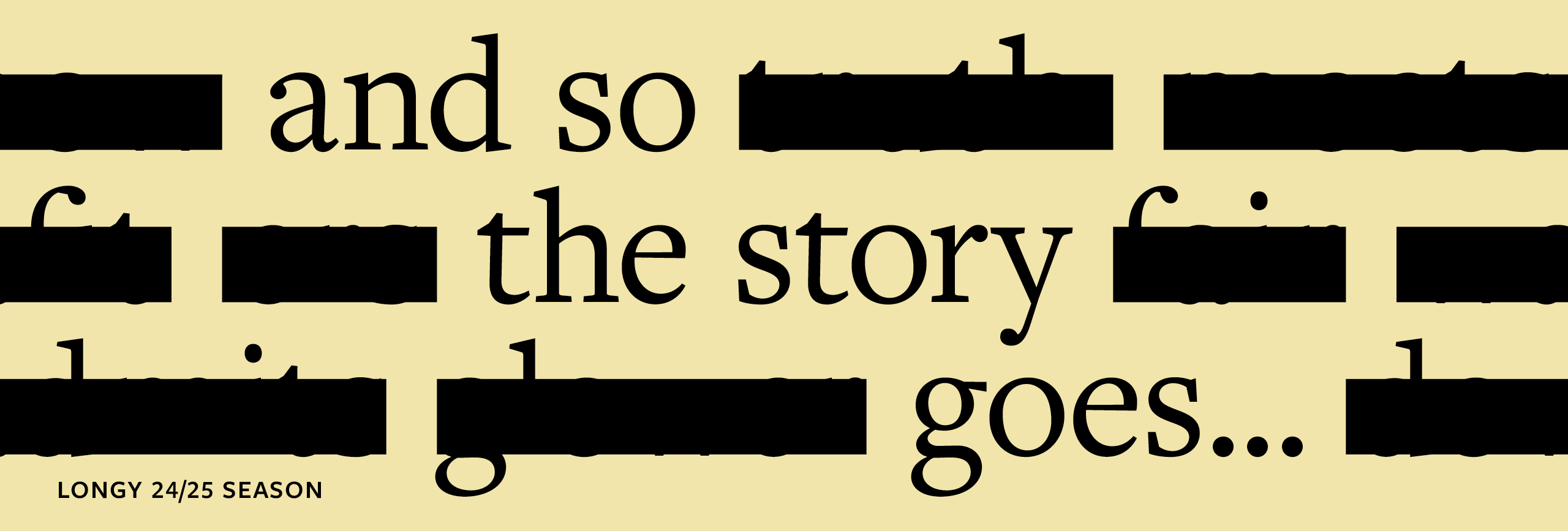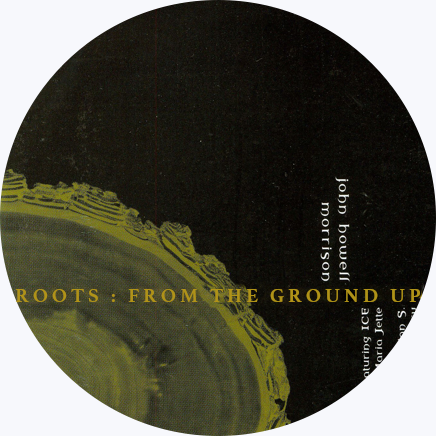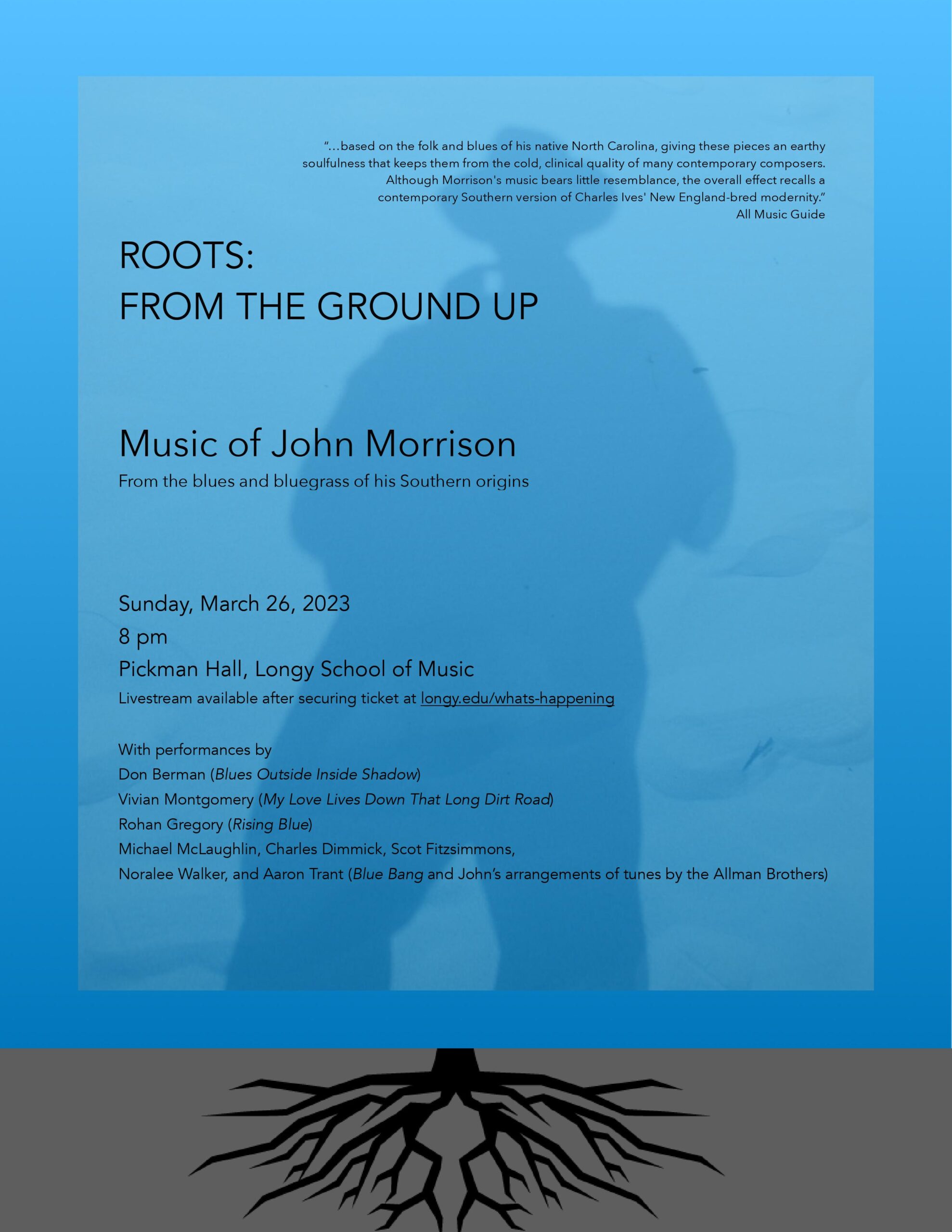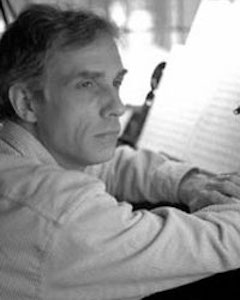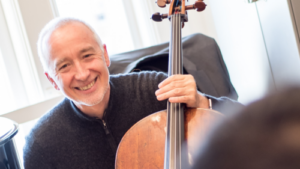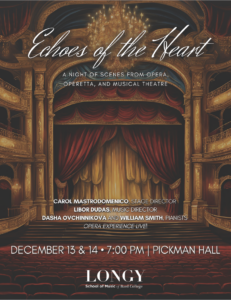Blues Outside Inside Shadow was composed in 1983-84. The title refers to the principle ideas in the work as well as to its structure and dedication. One central idea is a bluesy motive which recurs intermittently throughout the piece; it is framed by a 12-note melodic idea which undergoes a variety of “shadow” doublings. Toward the end is included a quotation in very long note values of the traditional tune “Just a Closer Walk with Thee”, which the composer’s mother had long requested be performed at her funeral. The tune’s presence along with the somber and ethereal mood of the piece thus matches its ultimate performance setting.
My Love Lives Down That Long Dirt Road was composed in Pittsburgh, Pennsylvania during the first half of 1992 and premiered October 20, 1992 in Nashville, Tennessee. The emotional shape set forth in the successive movements follows the progression of the developing relationship between the composer and Vivian Sarah Montgomery, the harpsichordist for whom the work is written. The overall title refers to the fact that in the early months of their relationship, Ms. Montgomery lived on the outskirts of Ann Arbor, Michigan, reached from the composer’s residence by way of a long dirt road. The movement bearing the same title uses a simple tune written during courtship and therefore carries the sentiment of that time. The “Funky Pair” movements explore the relation of independent manuals to each other and refer to the couple in question. Other movements reflect the difficulties of adjustment during marriage and a cyclical return of hope, joy, and humor.
Every sound in Rising Blue was first produced on violin. The tape part incorporates a wide range of digital signal processing of those sounds, from virtually none at all to moderate alteration. The music is in two large movements, with an interlude and postlude of similar sonic content. The title of the work comes from the name I attached to the sound source of the postlude. One of my most performed works, Rohan Gregory has distinguished himself as a profound interpreter of the piece on numerous occasions.
Blue Bang was composed in summer 2011 for the Firebird Ensemble of Boston, Kate Vincent, artistic director, with David Maxwell on piano. The idea of composing for this mix of instruments occurred to me after I learned that David, in addition to being a widely acclaimed blues pianist, was a devoted listener to new music. Since much of my music has been influenced by the blues, and that as a native Southerner I consider myself an heir to the tradition, it seemed a most natural path to take. David has passed away since the premiere, so we offer this performance to his memory. The structure of the piece unfolds as a series of explosions, a series of “Big Bangs” such as physicists theorize began our universe. String theory posits that our three spatial dimensions are but a portion of the eleven spatial dimensions that exist, and that sometime after the Big Bang, our spatial dimensions unfurled in a period of rapid expansion. Current thought seems to be that our universe continues to rapidly expand, and will never reach a point of maximum expansion and then collapse into another singularity and Big Bang. Blue Bang takes an opposing view, and allows each explosion to be followed by a collapse, to be followed by a slightly more significant expansion. Thus the subtitles which serve as rehearsal markers progress from small world 1 through small world 4, through expanding worlds 1, 2, and 3, eventually landing in improvising world 1 and improvising world 2. Musically, the aim of Blue Bang is to provide a new-music context for a blues pianist to be fully him- or herself, and to create a piece which lays out a continuous musical spectrum in which the kinship of blues and new music is made evident in sound.
Allman Brothers Suite was composed in 2010 for the late great new music group, Firebird Ensemble. Kate Vincent, its founding director, now lives in Los Angeles, but we have assembled the old group for tonight’s performance, and offer a nod a gratitude toward Kate for her openness to this piece, tonight’s performance, and her contributions to the new music life of Boston before her departure.

